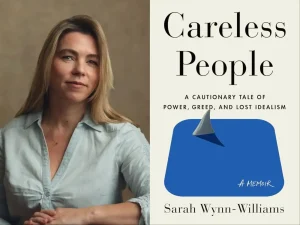HAMILTON — Arie Pekar was fooling around one day with his mom’s blood pressure machine when he discovered his reading was exceptionally high.
His mom, Ilana, has a blood pressure machine because she was then doing home dialysis for polycystic kidney disease (PKD), which causes cysts to develop and interfere with the organ’s ability to filter waste from the blood. Very high blood pressure is an early sign of this genetic disease.
Arie was tested and, at age 21, he found out he had inherited the condition.
Organ donation: the ultimate mitzvahThe chairman of the board of Ontario’s organ and tissue donation agency says educating the Jewish community about organ donation is a continual battle. Donating an organ is not only acceptable – it is the ultimate mitzvah, said Rabbi Reuven Bulka of Congregation Machzikei Hadas in Ottawa, who is chairman of the Trillium Gift of Life Network. “We have been hard-wired over thousands of years. It is not easy to take a mindset and recalculate it. “But saving of a life is considered the premier fulfilment of the Jewish religion, whether that is donating money to the poor, lifting one’s spirits or actually saving their bodily life.” Rabbi Bulka says that saving a life supersedes halachic restrictions such as the need for immediate burial after death. As for the belief that we must be buried whole, Rabbi Bulka points out that a person who has had his colon removed due to cancer is not being buried in his entirety. “If this idea is standing in the way of donating an organ, it doesn’t make any sense,” he said. “Jews have been at the forefront of lifesaving since time immemorial. We have come up with the best medicines. Some of our greatest sages were doctors. “We need our leaders to spring up. Our teachers and rabbis have to beat their drums on this and affirm that it’s the highest mitzvah. It’s not just acceptable, it’s the highest mitzvah. If people ask, ‘Is it something I must do?’ The answer must be ‘yes, yes, yes.’ Then we will get action.”
— A.C. |
Because Arie was diagnosed early and while he was in good health, doctors were optimistic about his prognosis. But despite preventive treatments and a healthy lifestyle, his disease is progressing quickly.
The Dundas, Ont., resident, now 33, was told about a year ago to prepare for a kidney transplant.
Friends and family have been tested and ruled out. His brother, Joshua, 30, is a perfect match. Over almost a year, he passed all screening tests to be able to donate a kidney to Arie – except for one. Although Joshua does not have PKD, doctors say his kidneys don’t function perfectly. While this will most likely not affect his health, it prohibits him from being a donor.
“This was a devastating shock,” said Ilana. “Joshua was so gung-ho on doing this for Arie, who was banking on it. My concern is for Arie to get a kidney before dialysis. In the meantime, his kidneys are declining. We don’t know what will happen.
“I welcome anything toward myself, but it’s very difficult to see him burdened by this.”
Arie’s wife, Joy, says although he doesn’t look sick, Arie is usually exceptionally tired, as the kidney is responsible for creating a hormone that triggers the body to create red blood cells. The disease can also cause nausea, skin conditions and trouble with digestion. The cysts on Arie’s kidney sometimes rupture, leaving him in extreme pain and incapacitated for up to a week.
“I am a private person but this is why we have had to come forward,” Arie said. “We are at a point where we need to share our story.” He added the family has received support and offers of help from many colleagues, acquaintances and even strangers.
Doctors say they would like to do the transplant before Arie starts dialysis, as this could make for a better prognosis. But because he is not on dialysis, he is not on the deceased donors transplant waiting list. This is why he needs a living donor.
And so does his mom.
Ilana has been on dialysis for 19 years. She was diagnosed with PKD shortly after giving birth to Arie. She was not told it was genetic, nor that there was a 50 per cent chance her children would inherit the disease.
After having Joshua, she started seeing a nephrologist who told her she would be on dialysis by age 45. She started when she was 40.
Ilana, a Burlington, Ont., resident, goes for dialysis six days a week for three hours each time. Her shoulders and back ache. And the dialysis causes her to have brittle bones that sometimes fracture for no reason. It also makes her brain feel “cloudy.”
“Dialysis prolongs life, but it’s not a cure,” Ilana said.
Arie’s dad gave her a kidney 16 years ago, which her body rejected. Two years later, a second kidney from a deceased donor also failed. Both times, she became very ill due to a reaction to the anti-rejection drugs.
“I fought really hard for those kidneys. They nearly did me in,” Ilana said, adding doctors are ready to try again.
This time, Ilana needs a living donor so the transplant can be scheduled and they can desensitize her body to the new organ by suppressing her immune system without her waiting on the list.
”A lot of people don’t live as long as me on dialysis,” Ilana said. “What can I say? I am not ready to throw in the towel yet. I have to see that my children are safe.”
For more information about the Pekars, visit Facebook at bit.ly/wnvdd9 or visit Twitter at bit.ly/Vy0fkd. Email address: [email protected].






